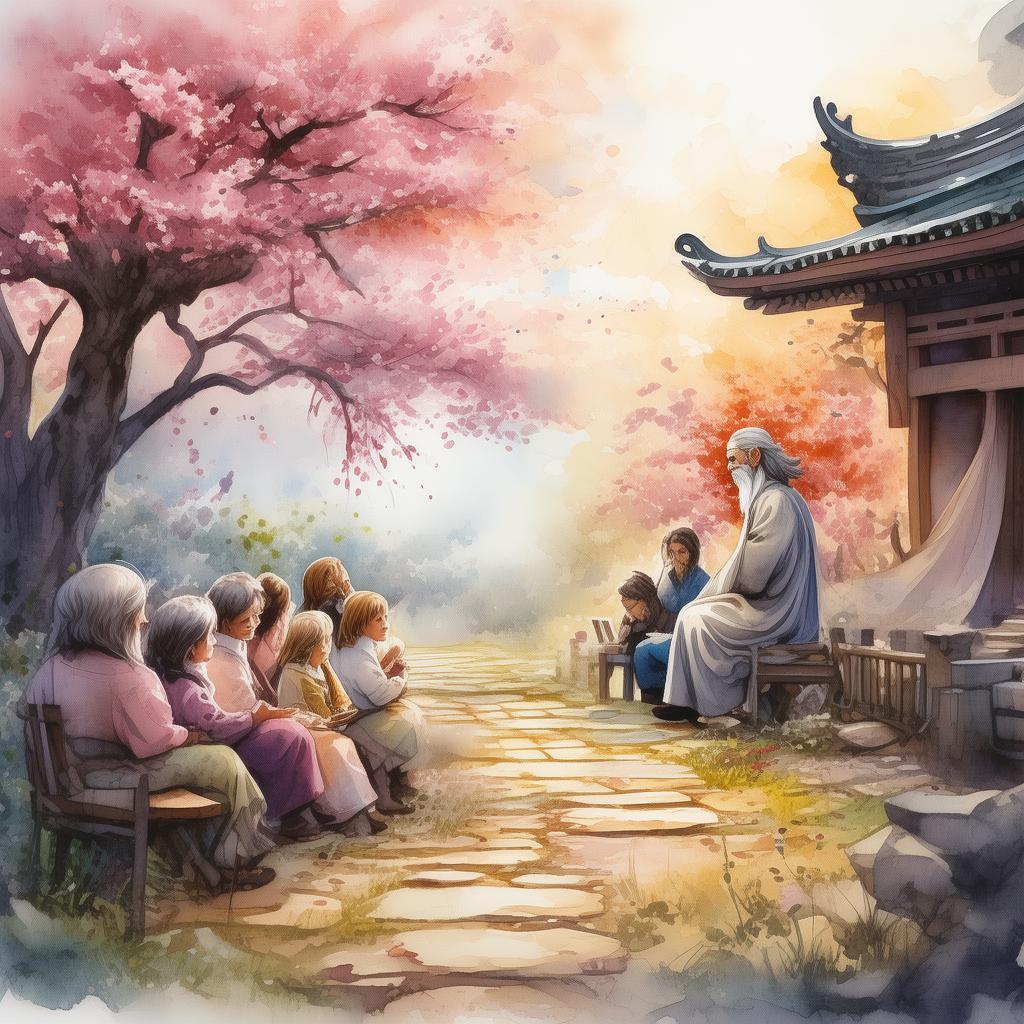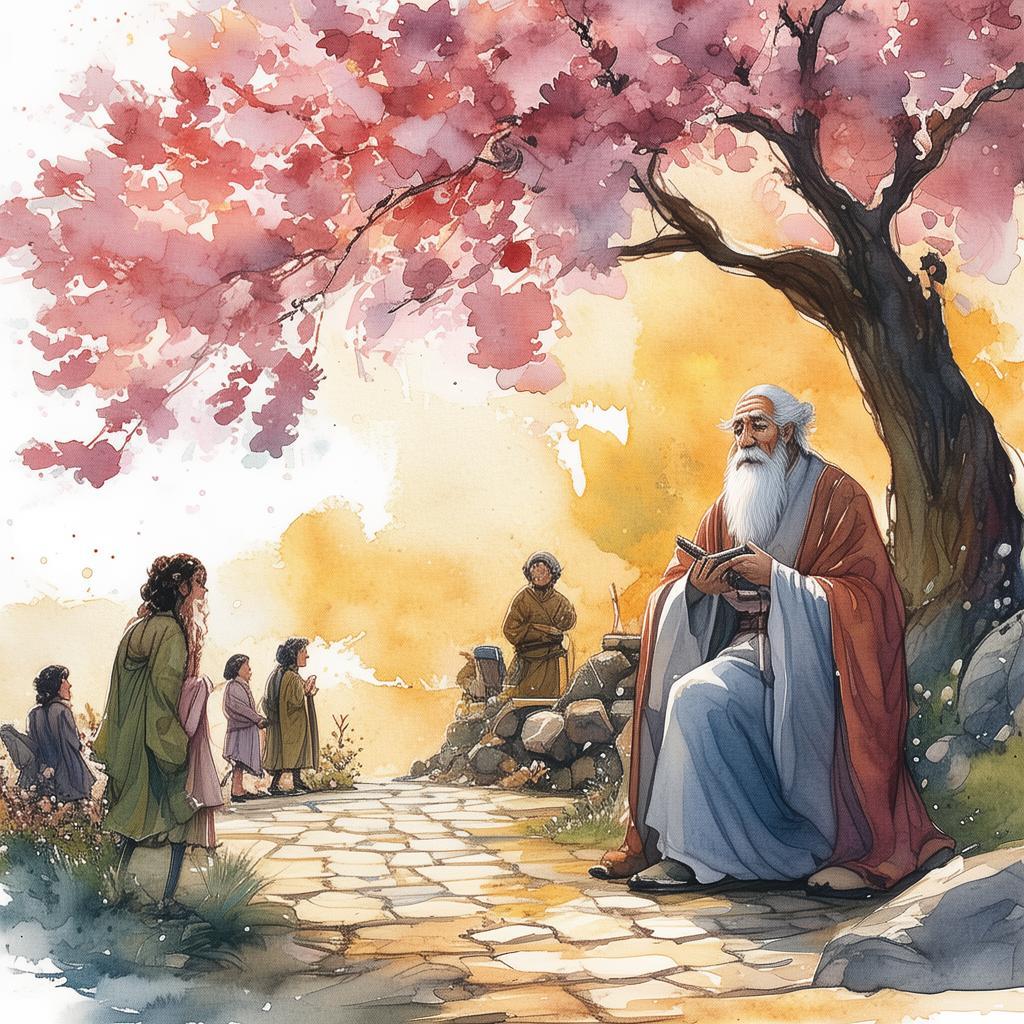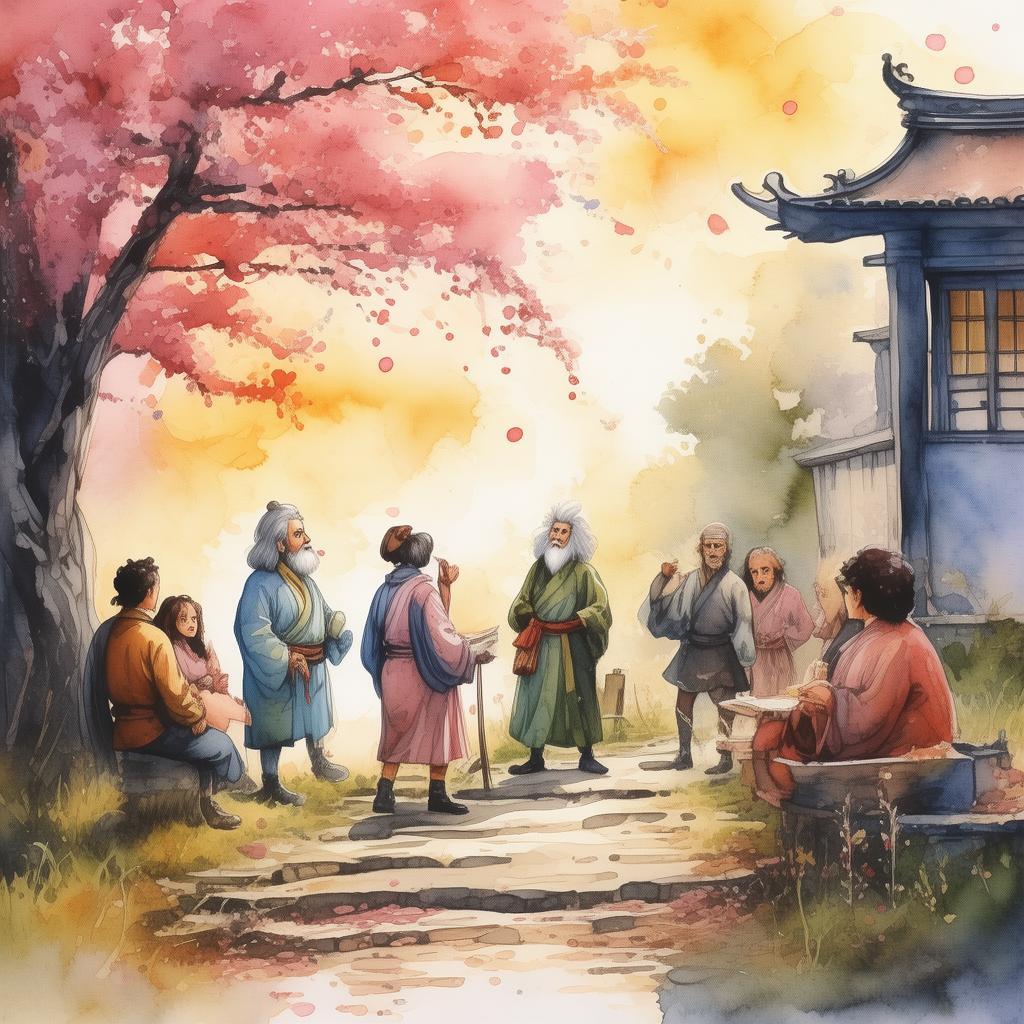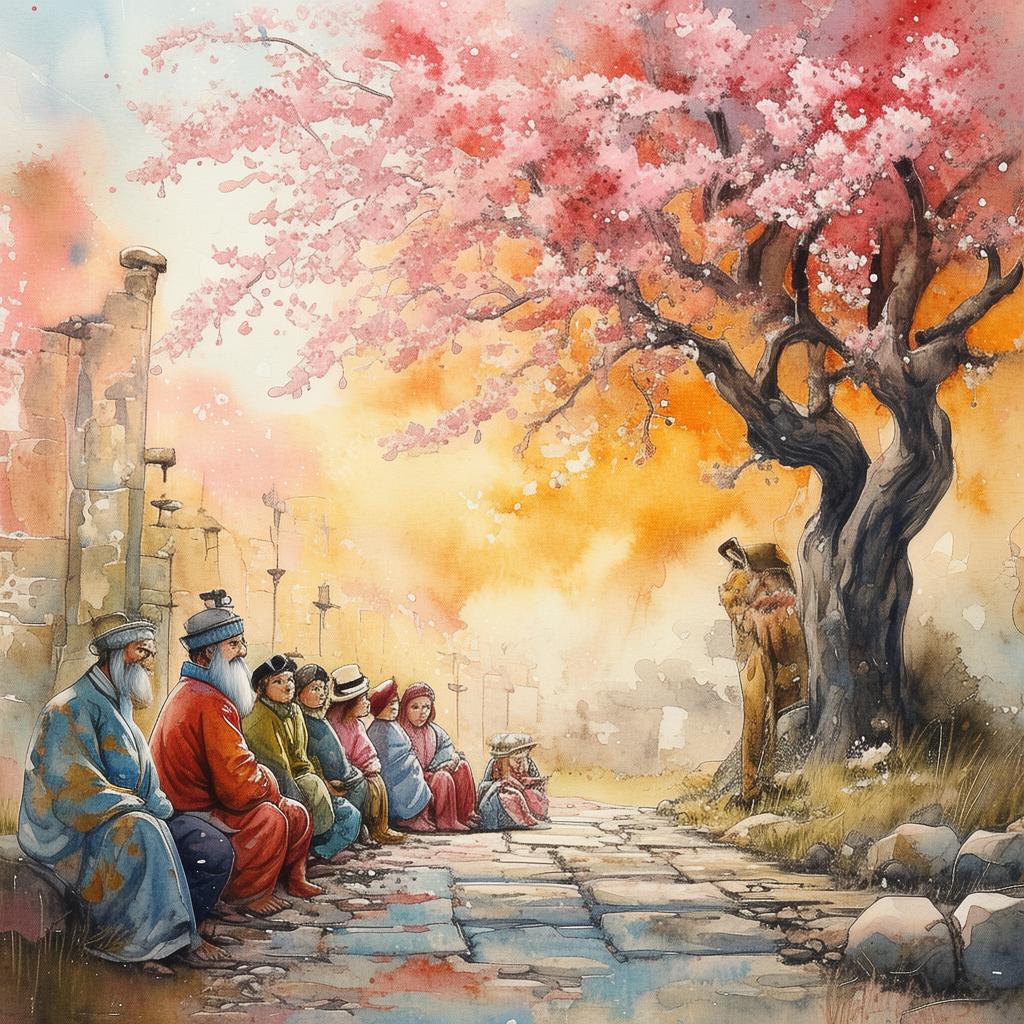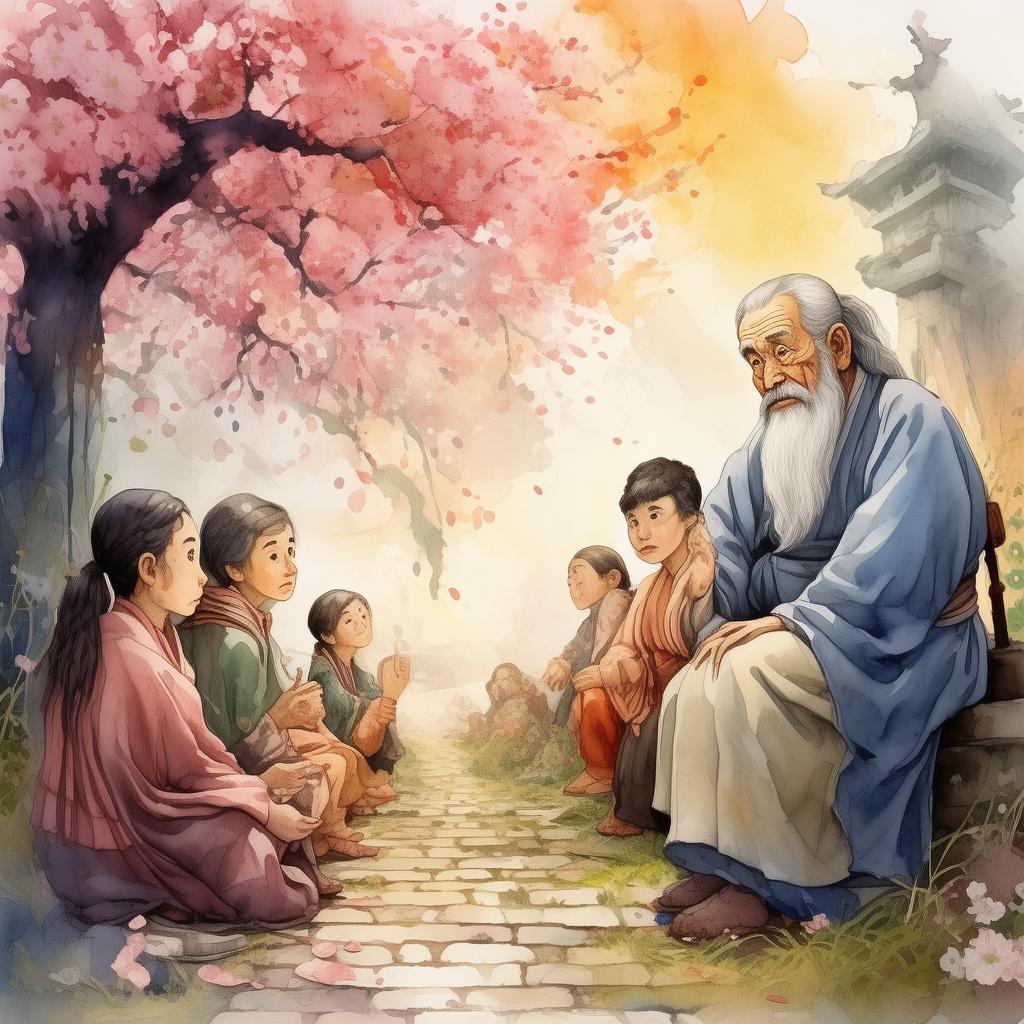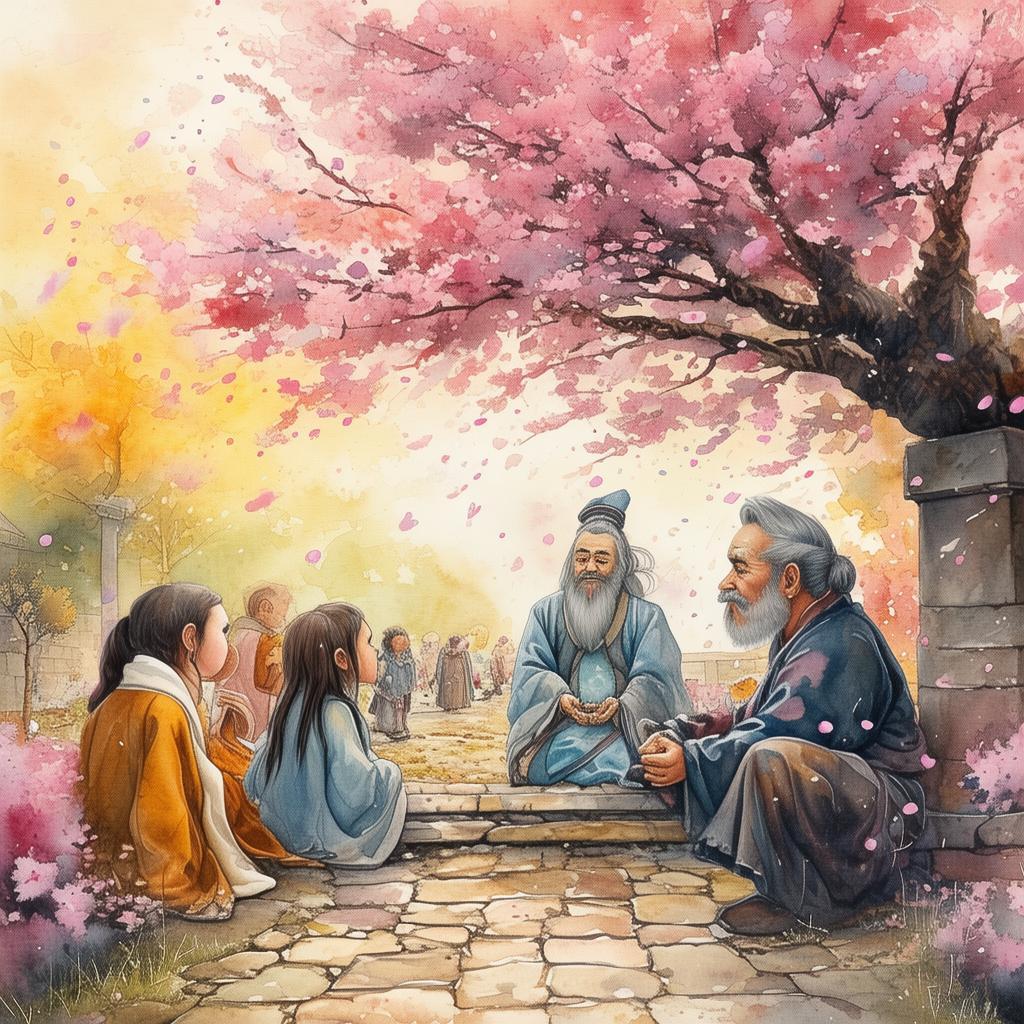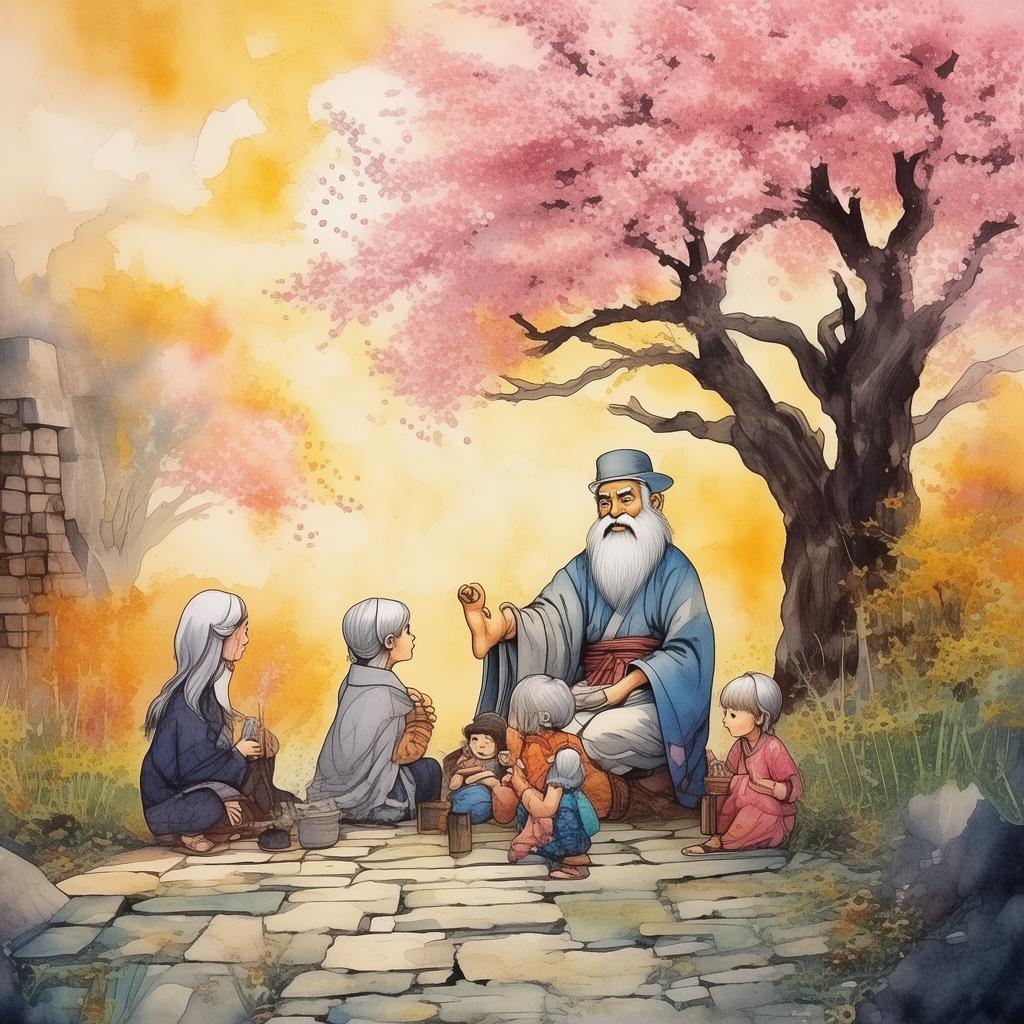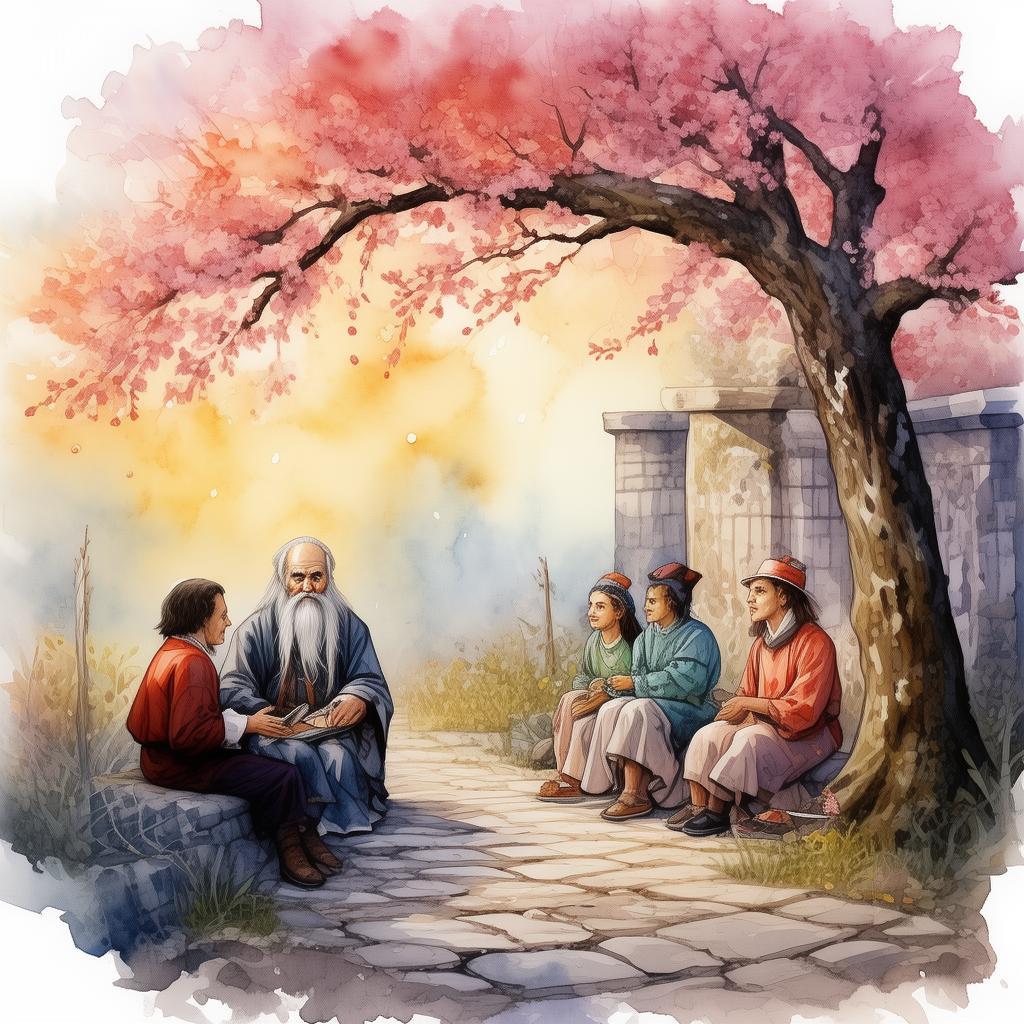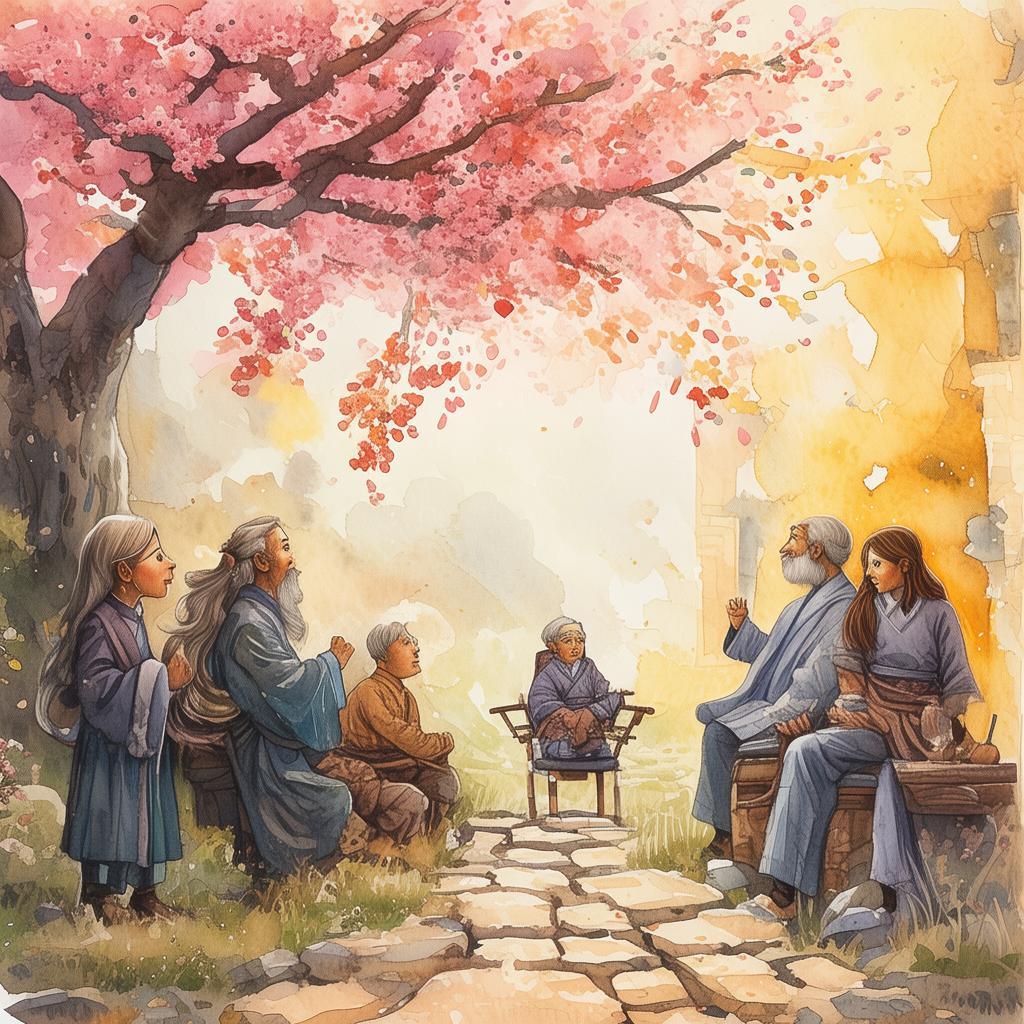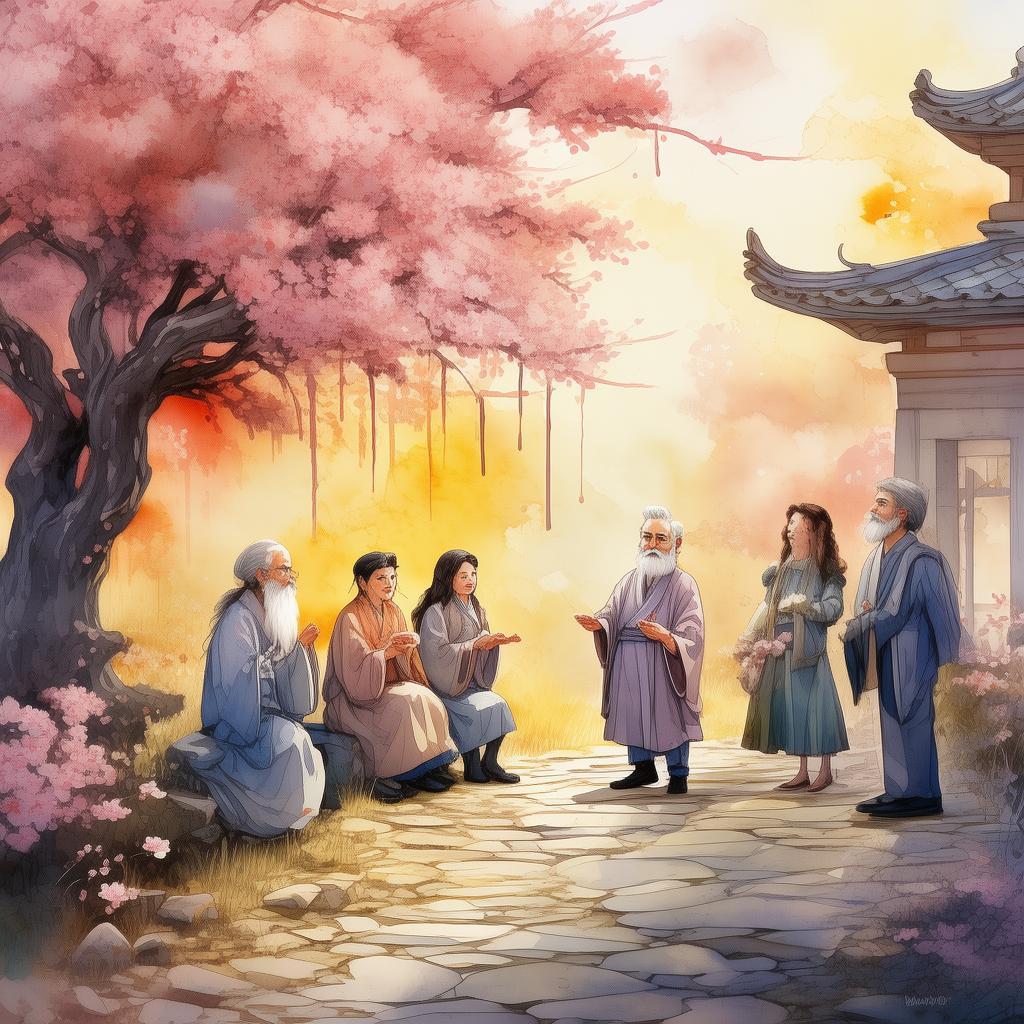Whispers of the Seven-Heads-and-Eight-Hearts
In the ancient kingdom of Jing, the land was divided by the Seven-Heads-and-Eight-Hearts Revolution. The kingdom, once a beacon of peace and prosperity, was now a patchwork of territories ruled by the eight sons of the former king, each vying for power. The sons were known as the Eight-Hearts, and their rule was marked by tyranny and corruption. The Seven-Heads were the eight advisors who had once been the king's closest confidants, now turned against the royal family, seeking to restore the kingdom's former glory.
Amidst this turmoil was Prince Jing, the youngest of the Eight-Hearts. Known for his wisdom and compassion, he was the only son who sought to unite the kingdom rather than rule it for his own gain. However, his efforts were met with skepticism and suspicion by his brothers and the Seven-Heads.

One evening, as the moon hung low in the sky, Prince Jing found himself in the courtyard of his palace, deep in thought. He had received a letter from an old friend, a former member of the Seven-Heads, who had defected and now lived in hiding. The letter spoke of a conspiracy to overthrow the prince and take the throne for themselves.
Prince Jing knew he had to act quickly. He sought out his closest advisor, a loyal servant named Ming, who had been with him since childhood. "Ming," he said, his voice low, "I need your help. The Seven-Heads are plotting against me. I must find a way to stop them."
Ming, a man of few words but great intellect, nodded solemnly. "I will do whatever it takes, Your Highness."
As the days passed, Prince Jing and Ming worked tirelessly to gather intelligence on the Seven-Heads. They discovered that the conspiracy was led by the most senior of the Seven-Heads, Lord Feng, who was believed to have been a loyal advisor until recent events had changed his mind.
One night, as the moon was full, Prince Jing and Ming set out to confront Lord Feng. They infiltrated his estate, a place shrouded in mystery and secrets. As they entered the courtyard, they were greeted by a guard who challenged them. Ming stepped forward, his hand on the hilt of his sword, and said, "We seek the counsel of Lord Feng. We mean no harm."
The guard, seeing the determination in Ming's eyes, allowed them to pass. They made their way through the estate, the air thick with anticipation. Finally, they reached Lord Feng's study, where he sat behind his desk, surrounded by scrolls and scrolls of ancient texts.
"Prince Jing," Lord Feng said, his voice tinged with a hint of respect, "I have been expecting you. I have seen the good you seek to do for this kingdom, and I cannot in good conscience stand in your way."
Prince Jing's eyes widened in surprise. "Why? What has changed your mind?"
Lord Feng sighed heavily. "I have learned of the true intentions of the other Seven-Heads. They seek not to restore the kingdom but to rule it with an iron fist. I cannot allow that to happen."
Before Prince Jing could respond, a commotion erupted outside. The other Seven-Heads had discovered the conspiracy and were storming the estate. Lord Feng turned to Prince Jing with a determined look. "I will help you, but we must act now."
With the help of Lord Feng, Prince Jing and Ming managed to turn the tide of the battle. The other Seven-Heads were defeated, and the conspiracy was thwarted. The kingdom was saved, but at a great cost. Lord Feng was killed in the battle, and Prince Jing was forced to take on the role of regent, ruling in place of his brothers until they were ready to govern responsibly.
The prince's rule was marked by a period of peace and prosperity. He worked tirelessly to rebuild the kingdom, restore the dignity of the throne, and ensure that the people of Jing would never again be subjected to the tyranny of the Eight-Hearts.
Years passed, and Prince Jing's legacy was one of wisdom and compassion. He was known as the Great Unifier, the one who had saved the kingdom from the brink of destruction. Yet, in his heart, he knew that the true power lay not in the throne but in the hearts of the people.
And so, the tale of the Seven-Heads-and-Eight-Hearts Revolution became a cautionary tale, a reminder that power, when not guided by wisdom and compassion, could lead to the downfall of even the greatest kingdoms.
✨ Original Statement ✨
All articles published on this website (including but not limited to text, images, videos, and other content) are original or authorized for reposting and are protected by relevant laws. Without the explicit written permission of this website, no individual or organization may copy, modify, repost, or use the content for commercial purposes.
If you need to quote or cooperate, please contact this site for authorization. We reserve the right to pursue legal responsibility for any unauthorized use.
Hereby declared.
